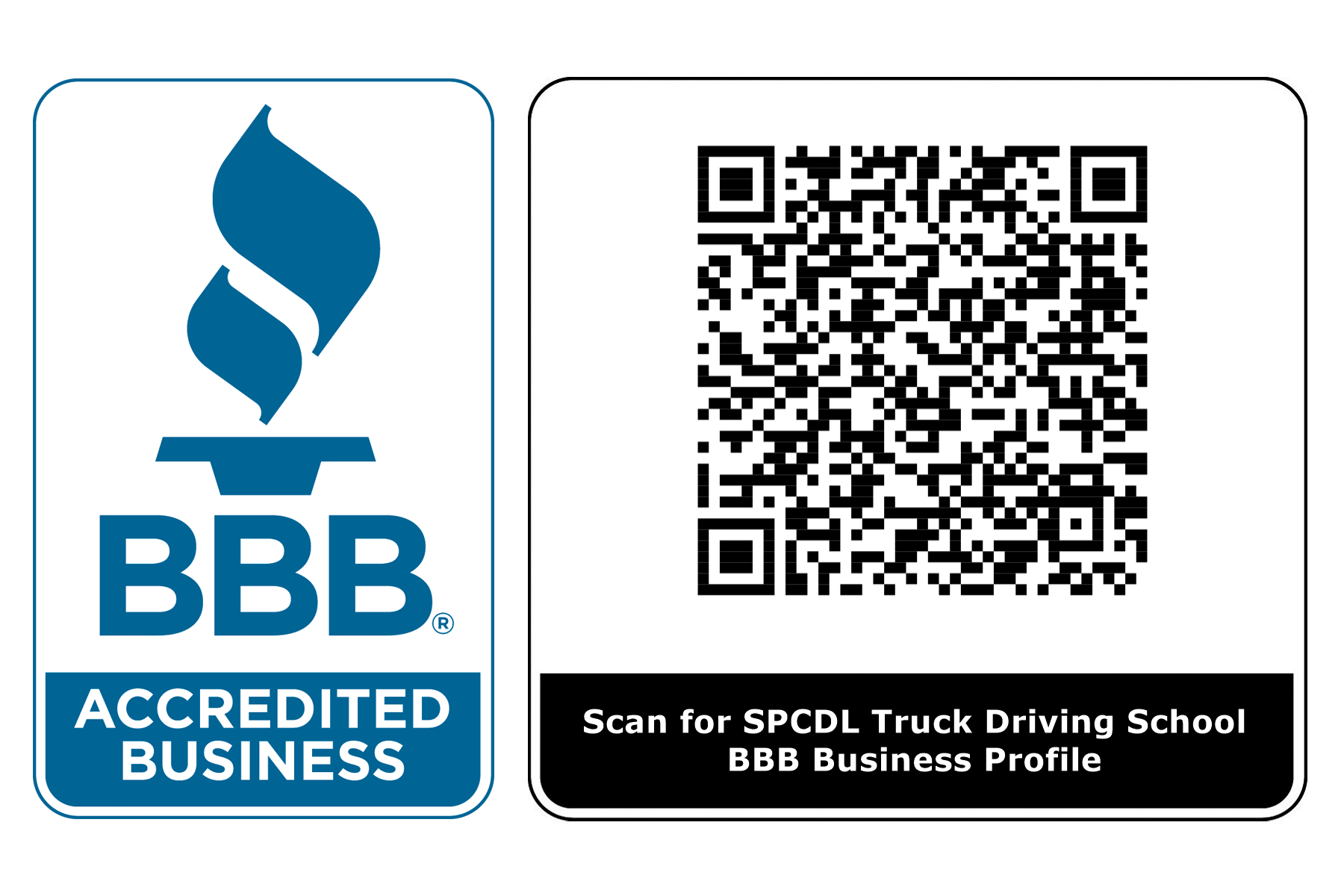Is Your ELD Compliant

Is Your ELD Compliant? Understanding the Importance of Electronic Logging Devices for Commercial Drivers
In today’s trucking industry, staying compliant with federal regulations is not just about keeping your vehicle in good working condition—it’s also about ensuring that your time on the road is accurately logged and reported. This is where Electronic Logging Devices (ELDs) come in. ELDs are essential tools for commercial drivers, as they help ensure compliance with Hours of Service (HOS) regulations set by the Federal Motor Carrier Safety Administration (FMCSA).
The importance of ELD compliance is critical. For truck drivers and fleet managers, having the right system in place can mean the difference between smooth operations and facing penalties for non-compliance. At SPCDL Truck Driving School, we understand how crucial it is for our students to not only pass their CDL exams but also to be fully prepared for the realities of life on the road. That’s why we integrate ELD training into our programs for Class A, B, C, Passenger Endorsement, and Hazmat licenses.
In this article, we’ll explore what ELDs are, why they’re important, and how SPCDL can help you stay compliant and safe on the road.
What is an Electronic Logging Device (ELD)?
An Electronic Logging Device (ELD) is a device that automatically records a commercial driver’s driving time and other hours-of-service (HOS) data. These devices help ensure that drivers adhere to federal regulations governing the maximum amount of time they can drive without taking a rest. ELDs are connected to the vehicle’s engine and automatically log the time when the vehicle is in motion.
Benefits of ELDs:
- Accuracy: ELDs minimize the chances of human error by automatically tracking driving hours and rest periods.
- Safety: By ensuring that drivers don’t exceed their HOS limits, ELDs help prevent fatigue-related accidents on the road.
- Efficiency: ELDs eliminate the need for paper logs, streamlining the record-keeping process for both drivers and fleet managers.
Since December 2017, the FMCSA has mandated that most commercial drivers use ELDs to track their HOS data. Non-compliance can lead to penalties, including fines and out-of-service orders, making it critical for drivers to ensure their ELD is functioning correctly and compliant with FMCSA standards.
FMCSA Requirements for ELDs
The FMCSA has set specific requirements that ELDs must meet to ensure they are accurate, reliable, and tamper-resistant. Understanding these requirements is essential for every commercial driver.
Key FMCSA ELD Requirements:
- Technical Specifications: ELDs must meet specific standards for data recording, storage, and transfer. They should be able to automatically record data related to:
- Engine power status
- Vehicle motion
- Miles driven
- Driver’s hours of service (HOS) data
- Driver Responsibilities: Drivers must ensure that all their driving hours and rest periods are logged correctly. If the ELD malfunctions, drivers must revert to paper logs until the issue is resolved.
- Data Transfer: ELDs must be capable of transferring data to enforcement officials during roadside inspections. This can be done via Bluetooth, email, USB, or other methods approved by the FMCSA.
At SPCDL Truck Driving School, we incorporate detailed instruction on ELD usage into our training programs. Our students learn not only how to operate ELDs but also how to troubleshoot common issues and ensure compliance with FMCSA regulations.
Ensuring Your ELD is Compliant
Given the critical role ELDs play in commercial driving, ensuring that your device is compliant with FMCSA standards is essential. Here are the key steps you should take to maintain compliance:
1. Check for Certification
Ensure that your ELD is certified by the FMCSA. Certified devices meet the strict technical and security standards required by federal regulations. You can check the FMCSA’s ELD Certification List to verify whether your device is compliant.
2. Keep Software Updated
ELDs, like any electronic system, require regular software updates to function properly. Drivers should check with their ELD provider to ensure they have the latest updates and that any bugs or vulnerabilities have been addressed.
3. Maintain Backup Logs
If your ELD malfunctions while you’re on the road, you must be prepared to revert to paper logs until the device is fixed. This is an important contingency plan that ensures you remain compliant even if your ELD is temporarily out of order.
4. Training for Compliance
At SPCDL Truck Driving School, we emphasize the importance of ELD compliance. Our students receive hands-on training with ELD systems, learning how to:
- Log hours correctly
- Transfer data during roadside inspections
- Troubleshoot common ELD issues
This training is integrated into our programs for Class A, B, and C CDL, as well as Passenger Endorsement and Hazmat licenses, ensuring that our graduates are fully prepared to comply with federal regulations.
Consequences of Non-Compliance
Failing to comply with ELD requirements can have serious consequences for both drivers and fleet managers. These include:
1. Penalties for Drivers
Drivers found to be in violation of ELD or HOS regulations may face fines, out-of-service orders, or even disqualification from driving. These penalties not only impact the driver’s record but can also disrupt their ability to work.
2. Penalties for Fleet Managers
Fleet managers are responsible for ensuring their drivers are compliant with ELD regulations. Non-compliance can result in significant fines for the company and, in extreme cases, the suspension of operations.
3. Safety Risks
Beyond financial penalties, non-compliance with ELD regulations can lead to serious safety risks. Driving beyond HOS limits increases the likelihood of fatigue-related accidents, putting both the driver and other road users at risk.
At SPCDL Truck Driving School, we help our students avoid these risks by ensuring they are fully trained on ELD usage and HOS compliance. By teaching these best practices, we help our graduates start their careers on the right foot.
SPCDL Truck Driving School and ELD Compliance
At SPCDL Truck Driving School, we pride ourselves on providing comprehensive training that prepares students not only for their CDL tests but also for the realities of professional driving. Understanding ELD compliance is a critical part of that preparation.
How SPCDL Prepares Students for ELD Compliance:
- Hands-On Training: Students receive practical, in-person instruction on how to use ELDs. This includes logging hours, transferring data, and troubleshooting any issues that arise.
- Pre-Trip and On-Road Experience: Our students practice using ELDs during both pre-trip inspections and on-road training, ensuring they are familiar with the systems in real-world scenarios.
- One-on-One Instruction: Our personalized training approach ensures that students fully understand ELD regulations and how to stay compliant, no matter what type of CDL or endorsement they are pursuing.
Comparing Class A, B, C Licenses with Passenger Endorsement and Hazmat Training for ELD Usage
Understanding the different classes of CDLs and how they interact with ELD requirements is crucial for new drivers. At SPCDL Truck Driving School, we provide tailored training for each type of license:
- Class A CDL: Designed for long-haul trucking and larger vehicles, this license often requires ELDs due to the extensive hours on the road. Accurate logging of HOS is essential to staying compliant.
- Class B CDL: Used for local and regional routes, drivers with a Class B CDL may not cover as much distance but still need to comply with HOS regulations. ELDs help track their time behind the wheel.
- Class C CDL: Often required for drivers transporting passengers or hazardous materials, this license also requires ELD usage for safety and compliance.
- Passenger Endorsement: Drivers transporting passengers, such as school bus or shuttle drivers, need to carefully monitor their driving hours to ensure they remain within HOS limits.
- Hazmat License: Transporting hazardous materials requires strict adherence to HOS and safety regulations, making ELDs essential for tracking hours and ensuring compliance.
ELD Compliance
ELD compliance is a crucial aspect of modern commercial driving. Ensuring that your ELD system meets FMCSA standards and that you understand how to use it correctly is essential for avoiding penalties and staying safe on the road. At SPCDL Truck Driving School, we equip our students with the skills and knowledge they need to be successful, compliant commercial drivers.
By enrolling at SPCDL, you’ll receive comprehensive training on all aspects of CDL driving, including ELD usage and HOS compliance. Whether you’re pursuing a Class A, B, or C CDL, or specialized endorsements like Passenger or Hazmat, SPCDL will prepare you for a successful and compliant career in commercial driving.
Ready to start your journey? Contact SPCDL Truck Driving School today and take the first step toward a fulfilling career in the trucking industry!



